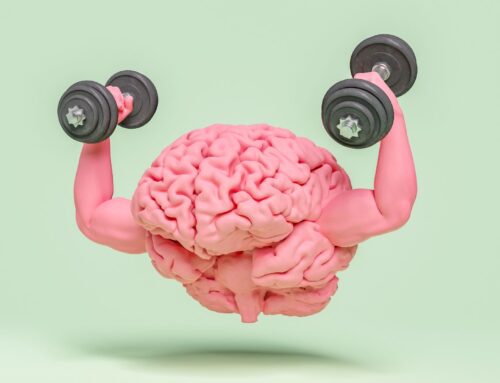Brain health is a crucial aspect of overall well-being, encompassing cognitive function, emotional well-being, and neurological health. The human brain is the most complex organ in the body and consumes a large percentage of the body’s energy.
To ensure healthy brain function throughout our lifespan, it is important to understand the role it plays and take steps to ensure you strengthen and protect it. In this article we will explore interesting fast about brain health, as well as discuss the benefits of exercise and why sleep is critical for brain health.
Table of Contents:
- Brains are complex
- Brain power and processing
- Multitasking is impossible
- Exercise is essential for your brain
- Sleep is critical for brain health
Brains are Complex
The human brain is the most complex organ in the body, producing our thoughts, actions, memories and perceptions of the world around us. There are approximately 100 billion neurons (nerve cells) in the mature human brain with each neuron connecting with other neurons to make a staggering 60 trillion neuronal connections.[i]
These connections allow for different regions of the brain to communicate as well as providing the basis for all of our physical and cognitive processes. The brain also has the ability to make structural and functional changes in response to injury, such as stroke and traumatic brain injury.
Brain Power and Processing
While the human brain accounts for only 2 percent of the body’s weight, it consumes about 20 percent of the body’s energy use.[ii] The brain is active all day long and even while we are sleeping.
Although there is a constant supply of energy to the brain (via the nutrients we consume), this supply does not increase when there is more for our brains to process.[iii] When we try to process too much information our brain diverts energy from other functions to try and compensate. This is often why cognitive tasks can be physically taxing, particularly in individuals recovering from a brain injury.
You may also enjoy reading: How to manage neurological fatigue
Multitasking is Impossible
Multitasking means trying to perform two or more tasks concurrently, which typically leads to repeatedly switching between tasks (i.e., task switching) or leaving one task unfinished in order to do another. As we go throughout our day, we rarely notice the constant state of multitasking we do as we switch between work, home and leisure tasks.
It was once thought that the ability to multitask was a useful and productive skill, however research now shows that the opposite is true. In fact, the human brain lacks the architectural ability to switch between two tasks.
Research has shown that multitasking increases the chances of making mistakes, missing important information and can hinder problem solving and creativity.[iv] In the long-term multitasking can negatively impact working memory (our ability to hold information in our mind) and long-term memory.[v]
You may also enjoy reading: Can exercise improve brain health
Exercise is Essential for Brain Health
We have known for some time the benefits of exercise for our cardiovascular health as well as reducing some types of cancers. However, it has become increasingly known how exercise is crucial for maintaining a healthy brain, particularly as we age.
Exercise has significant effects on brain health by:
- Increasing neurogenesis – Exercise stimulates the release of chemicals that effect the health of brain cells, stimulate the growth of new blood vessels in the brain and ensure the survival of newly formed brain connections.[vi]
- Improving mood and reducing stress – The release of endorphins and dopamine in your brain are feel good hormones reducing feelings of anxiety and stress.
- Reducing inflammation – Neuroinflammation is a key hallmark in many neurodegenerative diseases including Alzheimer’s Disease and multiple sclerosis.[vii]
You may also enjoy reading: How Exercise Supports Brain Function During Menopause
Sleep is Critical for Brain Health
Sleep plays a crucial role in maintaining optimal brain health. During sleep, the brain undergoes various processes that are essential for cognitive function, emotional well-being, and overall health. Here are some key ways in which sleep influences brain health:
- Memory Consolidation: Sleep is vital for consolidating and organizing memories. The brain processes and stores information acquired during the day, transferring it from short-term to long-term memory during different sleep stages.
- Cognitive Function: Adequate sleep is associated with improved cognitive functions, including attention, problem-solving, creativity, and decision-making. Lack of sleep or poor sleep quality can lead to impaired concentration and decreased cognitive performance.[viii]
- Brain Detoxification: During sleep, the lymphatic system, a waste clearance system in the brain, becomes more active. This process helps remove toxins and waste products that accumulate in the brain throughout the day, promoting a healthy neural environment.[ix]
- Emotional Regulation: Sleep is essential for emotional well-being and regulation. Insufficient sleep can contribute to increased emotional reactivity, irritability, and difficulty managing stress. Chronic sleep deprivation is linked to an increased risk of mood disorders such as depression and anxiety.
- Neuroplasticity: Sleep is crucial for neuroplasticity, the brain’s ability to reorganize itself and form new neural connections. This process is important for learning, adaptation, and maintaining cognitive flexibility.
You may also enjoy reading: Brain injury: prevention, treatment and lived experiences
These facts help to illustrate the importance of maintaining and ensuring our brain health through various lifestyle factors including exercise, sleep and nutrition. Through these simple yet important changes we can protecting and strengthening our body’s most important organ, and ensure a healthy brain throughout our lifespan.
References
[i] Gulati A. Understanding neurogenesis in the adult human brain. Indian J Pharmacol. 2015 Nov-Dec;47(6):583-4. doi: 10.4103/0253-7613.169598. PMID: 26729946; PMCID: PMC4689008.
[ii] Balasubramanian V. Brain power. Proc Natl Acad Sci U S A. 2021 Aug 10;118(32):e2107022118. doi: 10.1073/pnas.2107022118. PMID: 34341108; PMCID: PMC8364152.
[iii] Energy Demands Limit Our Brains’ Information Processing Capacity, Neuroscience News
[iv] Multitasking—a medical and mental hazard, Harvard Health Publishing
[v] Why multitasking does more harm than good, Wu Tsai Neuroscience Institute, Standford University
[vi] Konopka LM. How exercise influences the brain: a neuroscience perspective. Croat Med J. 2015 Apr;56(2):169-71. doi: 10.3325/cmj.2015.56.169. PMID: 25891878; PMCID: PMC4410170.
[vii] Seo DY, Heo JW, Ko JR, Kwak HB. Exercise and Neuroinflammation in Health and Disease. Int Neurourol J. 2019 Nov;23(Suppl 2):S82-92. doi: 10.5213/inj.1938214.107. Epub 2019 Nov 30. PMID: 31795607; PMCID: PMC6905205.
[viii] Eugene AR, Masiak J. The Neuroprotective Aspects of Sleep. MEDtube Sci. 2015 Mar;3(1):35-40. PMID: 26594659; PMCID: PMC4651462.
[ix] Brain Basics: Understanding Sleep, National Institute of Neurological Disorders and Stroke
Written by

















